CONNECTING SCIENCE AND TECHNOLOGY WITH LIFE AND BUSINESS
I strongly agree with the spirit of the Draft Document: "Science and technology development, innovation and digital transformation are the central driving force of the new growth model; are the decisive factors for productivity, quality, efficiency and competitiveness of the economy ". It is valuable that in this draft, the thinking of science and technology development does not stop at "development pillars", but has been elevated to "strategic breakthroughs", along with institutional improvement and development of high-quality human resources. The 14th Congress has set out 4 key transformation focuses: digital transformation, green transformation, energy transformation, structural transformation and human resource quality. That is the creative concretization of the spirit of the 13th Congress Resolution, reflecting the vision of national development in the context of the fourth industrial revolution and Vietnam's deep integration.
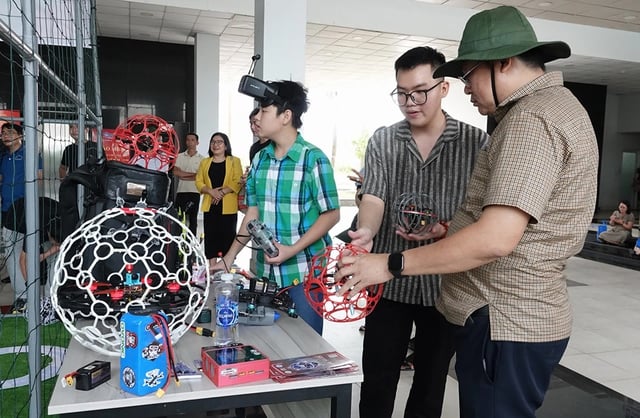
Research products at the high-tech business incubator in Ho Chi Minh City High-Tech Park
PHOTO: SY DONG
However, based on practical experience in the health system and the research process, I believe that to turn that thinking into real strength, we need a new approach - more integrated, more daring and more humane - to maximize the creative capacity of Vietnamese people in all fields.
For decades, we have considered science and technology as the driving force for development. But entering the next phase, I believe that science and technology should be considered the "core energy" and "knowledge infrastructure" of the country, similar to electricity and transportation in the 20th century. I propose that the Document add to paragraph 6, part VII on Breakthrough in science and technology development, innovation and national digital transformation: "Consider knowledge and data as national assets; science and technology as the core energy, innovation as the new development method". That is the foundation to affirm that science is no longer an auxiliary tool, but the center of national competitiveness.
A major challenge today is the gap between academic research and practical application. I recommend that the Document further emphasize in paragraph 6, part VII the building of a knowledge-market bridge mechanism, to facilitate the formation of initiatives to convert knowledge into products. For example, the National Technology Transfer Service Center, which helps businesses search, buy, or order domestic research results; or applied biomedical technology parks, where research institutes, hospitals, and start-ups can jointly test, produce samples, and commercialize products. At the same time, perfect the mechanism and policies for science and technology development in accordance with market principles, international standards and practices, and completely remove barriers to investment and research autonomy. Science and technology can only truly be a driving force for development when it is closely linked to people's lives and business efficiency.
In addition, it is recommended to add the orientation of "building a data and digital knowledge economy" in paragraph 3, part VII, as a basis for including specific content in the National Target Program 2026 - 2035, with a clear roadmap on infrastructure, legal corridor and human resource training.
I believe that digital transformation cannot be just about purchasing software or deploying IT systems. The core issue is transforming leadership thinking, decision-making and organizational culture. For digital transformation to be truly successful, I would like to propose adding to paragraph 5 of Part VII the building of a "National Digital Culture", which emphasizes three values: transparency - sharing - learning. We need to consider data and knowledge as "strategic public assets", like land or budget, which must be managed in a unified manner and used for the benefit of all people, based on digital cultural values, expressed in decision-making, data management, interaction between parties and building digital trust. Without digital culture, even modern technology projects can easily become fragmented, lack sharing, lack inheritance and fail to create long-term value.
The draft Political Report has established "4 transformations" as the development orientation, in which digital transformation is the main driving force. I propose to add to paragraph 5 of Part VII the content on the connection between digital transformation and green transformation, thereby creating a basis for building a mechanism to encourage technology enterprises to participate in clean energy development and emission management using digital data. At the same time, promote research on green medical technology, smart hospitals, remote health management, both serving people's lives and contributing to reducing emissions and energy consumption. It is recommended to include the criterion "digital efficiency - green efficiency" in the evaluation criteria of public investment projects. Thus, digital transformation is not only a management tool, but also a method of sustainable development.
BUILDING A "TALENT - DATA - EXPERIMENT" MECHANISM
Currently, many young Vietnamese scientists have the capacity and aspiration, but lack the opportunity and space to experiment, to make mistakes and to do it again. Therefore, it is proposed to supplement paragraph 7 of section VII with a mechanism to protect and encourage young cadres to dare to think, dare to do, dare to break through for the common good, and at the same time build a "Young Innovation Ecosystem" associated with universities, hospitals and research institutes. This is the basis for empowering young scientists to have the opportunity to lead independent projects at the ministerial and national levels if they are qualified, instead of having to go through many layers of formal review, as well as creating a mechanism to evaluate research results based on applied value, not just the number of articles.
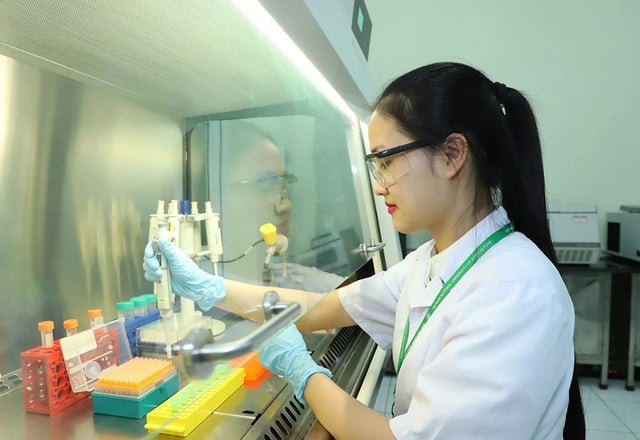
There needs to be a mechanism to give young scientists the opportunity and space to experiment and innovate.
PHOTO: NGOC THANG
In practice, many domestic researches have not been able to be commercialized or widely applied, largely due to lack of data, lack of flexible testing environment, and lack of incentive mechanism for talented people. Therefore, I propose to add 2 specific groups of solutions to paragraph 8, part VII:
Firstly, to form an open national database on science and technology, inventions and publications, allowing controlled exploitation for research purposes. This will be the foundation for developing new technologies such as artificial intelligence (AI), machine learning, precision medicine or digital economy.
Second, establish a national fund for developing young science and technology talents to support young scientists with potential projects, to own research results, access venture capital and international publications. At the same time, it is necessary to pay attention to investing in national technology infrastructure, building international standards and regulations, so that domestic research can be connected and integrated into regional and world scientific networks.
When the state creates experimental space, businesses and researchers will boldly innovate and dare to take responsibility, which is the foundation for a dynamic innovation ecosystem.
Our generation - young intellectuals born in the period of innovation, growing up in the period of integration and living in the digital era - has a strong belief that Vietnamese knowledge can completely conquer world knowledge. The 14th National Party Congress is an important historical moment for us to shift from "driving force" to "main foundation" of science and technology, innovation and national digital transformation. I hope that in the official document, our Party will continue to affirm more clearly the vision of "Building Vietnam into an innovative nation, with an economy based on knowledge, data and human values".
Source: https://thanhnien.vn/niem-tin-gui-dang-dua-kh-cn-thanh-nang-luong-loi-phat-trien-quoc-gia-185251107160811975.htm



![[Photo] Heavy damage after storm No. 13 in Song Cau ward, Dak Lak province](https://vphoto.vietnam.vn/thumb/1200x675/vietnam/resource/IMAGE/2025/11/08/1762574759594_img-0541-7441-jpg.webp)




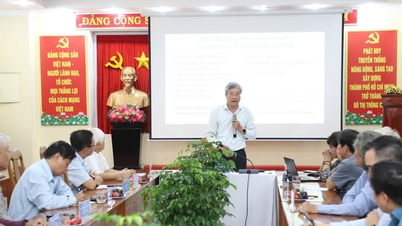





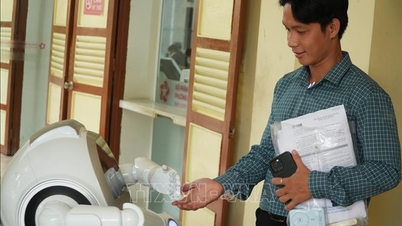

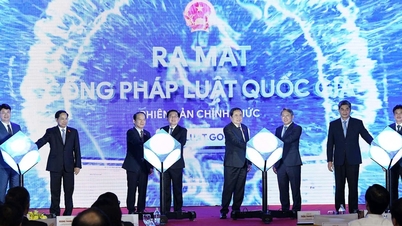




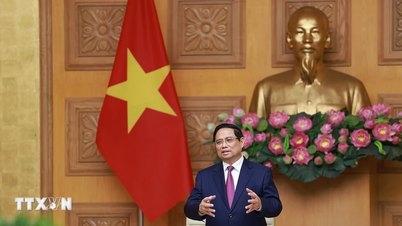


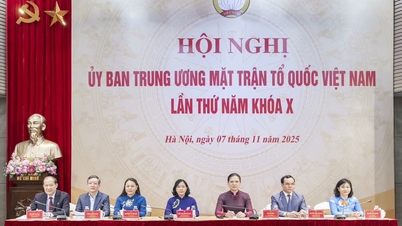

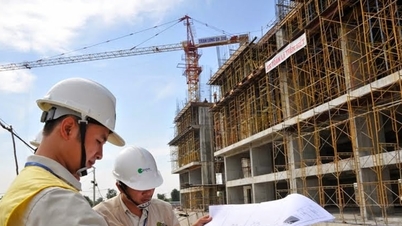












![[Video] Hue Monuments reopen to welcome visitors](https://vphoto.vietnam.vn/thumb/402x226/vietnam/resource/IMAGE/2025/11/05/1762301089171_dung01-05-43-09still013-jpg.webp)


































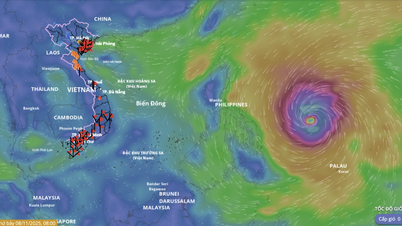











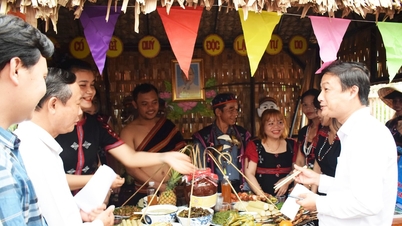

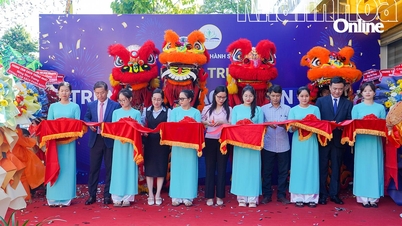


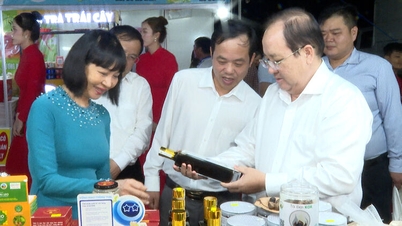


















Comment (0)